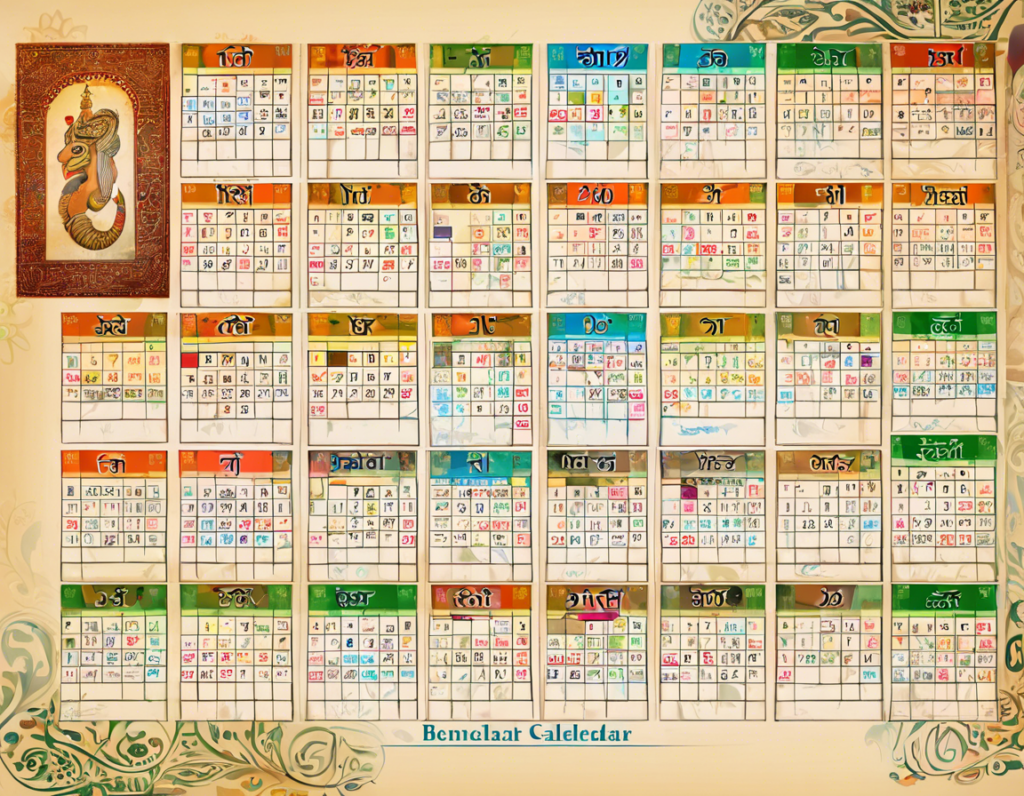
The Bengali calendar, also known as Bangla calendar, is a solar calendar widely used in the Bengali-speaking regions of the Indian subcontinent. It follows the traditional Hindu lunisolar calendar system and is a key cultural aspect of the Bengali community. The year 2024-25 in the Bengali calendar, also known as ‘1429’ according to the Bengali numbering system, is filled with numerous festivals, events, and auspicious dates. Let’s delve into some of the key highlights of the Bengali calendar for the year 2024-25.
The Bengali calendar is a unique blend of solar and lunar calendars, with months based on the phases of the moon and years based on the solar cycle. Each year in the Bengali calendar begins with the month of Boishakh and consists of 12 months, with each month divided into two halves – the bright half (Shukla Paksha) and the dark half (Krishna Paksha).
1. What is the significance of Pohela Boishakh in the Bengali calendar?
– Pohela Boishakh marks the Bengali New Year and is celebrated as a symbol of new beginnings, cultural heritage, and unity.
2. How is the Bengali calendar different from the Gregorian calendar?
– The Bengali calendar follows a lunisolar system based on the phases of the moon, while the Gregorian calendar is a solar calendar based on the Earth’s orbit around the sun.
3. What are some traditional rituals associated with Durga Puja in West Bengal?
– Durga Puja involves elaborate pandal decorations, idol immersion, cultural programs, traditional dances (Dhunuchi Naach), and offering prayers to Goddess Durga.
4. Why is Diwali celebrated in the Bengali calendar?
– Diwali is celebrated by the Hindu community in West Bengal and other Bengali-speaking regions as a festival of lights symbolizing the victory of light over darkness.
5. What is the significance of Nabanna in the Bengali calendar?
– Nabanna is a harvest festival that celebrates the agricultural abundance and is a time to express gratitude to the goddess of food and prosperity.
In conclusion, the Bengali calendar 2024-25 is filled with a rich tapestry of festivals, events, and auspicious dates that reflect the cultural vibrancy and traditions of the Bengali community. From Pohela Boishakh to Durga Puja to Diwali, each festival brings people together in joyous celebrations and spiritual observances, highlighting the essence of unity and diversity in the Bengali culture.